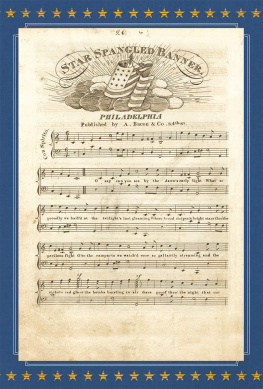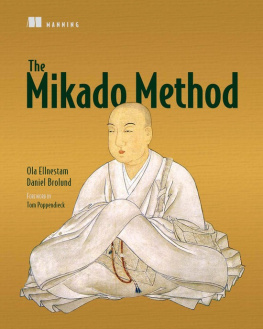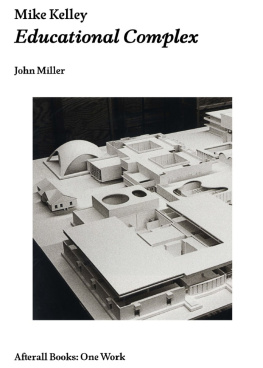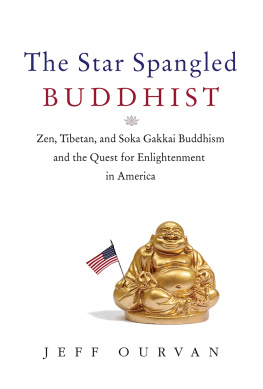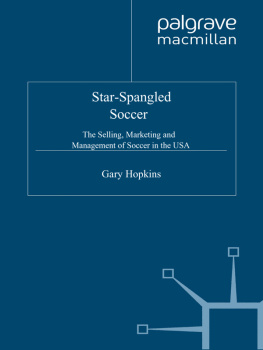This edition is published by PICKLE PARTNERS PUBLISHINGwww.pp-publishing.com
To join our mailing list for new titles or for issues with our books picklepublishing@gmail.com
Or on Facebook
Text originally published in 1947 under the same title.
Pickle Partners Publishing 2016, all rights reserved. No part of this publication may be reproduced, stored in a retrieval system or transmitted by any means, electrical, mechanical or otherwise without the written permission of the copyright holder.
Publishers Note
Although in most cases we have retained the Authors original spelling and grammar to authentically reproduce the work of the Author and the original intent of such material, some additional notes and clarifications have been added for the modern readers benefit.
We have also made every effort to include all maps and illustrations of the original edition the limitations of formatting do not allow of including larger maps, we will upload as many of these maps as possible.
STAR-SPANGLED MIKADO
BY
FRANK KELLEY
AND
CORNELIUS RYAN
DEDICATION
Dedicated to the late Ogden Reid and to Lord Camrose, our editors, without whom this book would not have been possible.
THE JAPANESE {1}
How courteous is the Japanese;
He always says, Excuse it, please.
He climbs into his neighbors garden,
And smiles, and says, I beg your pardon;
He bows and grins a friendly grin,
And calls his hungry family in;
He grins, and bows a friendly bow;
So sorry, this my garden now.
OGDEN NASH
CHAPTER ONEINTO THE UNKNOWN
THE NEW MIKADO sat back in his overstuffed chair, lit the famous corncob pipe, stabbed the air with a half-filled matchbox and said:
Gentlemen, even after fifty years among the Orientals, I still do not understand these people.
The speaker was General of the Army Douglas MacArthur. The place was Tokyo. The time was January, 1946, six months after his invasion of the unknown.
On September 2, 1945, on the broad deck of the Missouri, he had sternly bade the Japanese to write an end to fifteen years of aggression. His voice was firm, but his hands shookperhaps betraying advancing years. A stumpy-legged Japanese, looking slightly ridiculous and out of place amid all the freshly starched khaki and shining gold braid, stepped up to the table in top hat, cutaway, striped trousers. The Japanese scratched his name on the dotted line. The formalities of surrender were complete.
For MacArthur, it was the end of the road, the long road back from Bataan and Corregidor. For the Japanese, it was defeat, their first in two thousand years of history. For the Allies, it was a first step into an enigmatic future, an uneasy, atomic peace.
The only guideposts along the route were the Potsdam Declaration, the Moscow and Cairo Agreements and a card index of intelligence reports. On the horizon were two dark cloudsatomic hysteria and a new, lusting Russia.
MacArthurs voice was heard round the world from the Missouri. It had a ring of finality, of purpose. But no one could fathom the terror and despair that gripped seventy million Japanese hearts. They had lost all confidence, all hope, when Emperor Hirohito, supposedly the almighty and infallible descendant of the Sun Goddess, told them over the radio that they had lost the war, and commanded: Hostilities cease forthwith.
The Emperors voice, squeaking over Radio Tokyo and satellite stations, stunned the Japanese people, even though it was a recorded voice. Never had the Japanese been beaten. Now they gave way to mass weeping, a demonstration of Hitlerian frustration on a large scale.
And scores of the Emperors loyal subjects who had not been able to die for him on Saipan, or Okinawa, or Iwo Jima, or in the mountainous caves of the Philippines now came before the palace in Tokyo to disembowel themselves publicly. It was the same sort of defeatist reaction that some of us had witnessed in July, 1944, at the close of the brief but bloody campaign on Saipan. First came hordes of wild, drunken, half-armed Japanese soldiers to swamp our lines, kill as many Americans as they could and finally commit suicide. A few days later Japanese civilians on the northern tip of the island, who could not believe that Americans would feed them and bind their wounds, jumped into the sea after orgiastic sessions of prayer, song and bathing. Otherswhole families of themwho did not wish to drown stood in circles and tossed hand grenades at one another.
Now in Tokyo came the same sort of maniacal demonstration. It was to continue through the long first winter of the Allied occupation. The suicide rate in the capital soared. Some Japanese just couldnt take the Americans. Others were in despair for want of food, clothing and shelter. Many sorrowed for soldiers who would never come back from Palau, Borneo and New Guinea.
A small army of young hotheads wanted to fight on, to defy the Imperial Rescript announcing the end of the war.
Learning that the Emperor had recorded his rescript in advance for release at the appointed hour on August 15, hotbloodsincluding a goodly number of Kamikazesrushed to the palace of the Imperial Guard Division just before midnight on the 14 th . They roused General Susumu Mori, division commander, and demanded that he lead a search of the palace grounds for the imperial recording. Mori refused, and they shot him.
Another group of younger officers approached General Yoshisiro Umezu, chief of the general staff, suggesting he lead a coup dtat. He refused. The recalcitrants went after the War Minister, Korechika Anami. Anami had resisted earlier moves in the Cabinet for surrender, then had wept with remorse for opposing the Emperors will. Now he told the hotheads to obey.
In Moris blood-drenched headquarters the first band of rebels forged a series of orders for the arrest of Sotaro Ishiwata, minister of the Imperial Household; Marquis Koichi Kido, Lord Keeper of the Privy Seal and the Emperors most intimate adviser; Baron Kiichiro Hiranuma, president of the Privy Council, and others.
Ishiwata, arriving home at 1 A.M. on the morning of the 15 th , found troops outside his house. Just then an air-raid alarm sounded. He ordered his chauffeur to return to the palace through blacked-out Tokyo. At the palace he overheard in the dark a conversation which revealed to him that his life was in danger. He found the crafty Kido (the man who advised the Emperor to pick Tojo as premier, and who later was plucked by MacArthur as a war-criminal suspect) and hid with him in an underground shelter.
Irate troops broke into the palace grounds and tramped through, looking for the recording of the Emperors voice. They smashed up Ishiwatas office in their fury. Other groups hunted government offices elsewhere in Tokyo, and also in Yokohama. One gang raided the Radio Tokyo building. Others machine-gunned the home of the prime minister, Kantaro Suzuki, and set it afire. They also fired the home of Hiranuma. Roving bands wrecked several radio transmitters in and near the city, hoping to keep the Imperial Rescript off the air.
General Seiichi Tanaka, commander of the Eastern Army, rushed to the palace at about dawn of the fateful day. He confronted the ringleaders and told them resistance was useless. Suicide, he suggested, was the only way to atone for violation of the palace precincts. The four chief rebels walked off and shot themselves. The bewildered and befuddled Anami also committed suicide.





